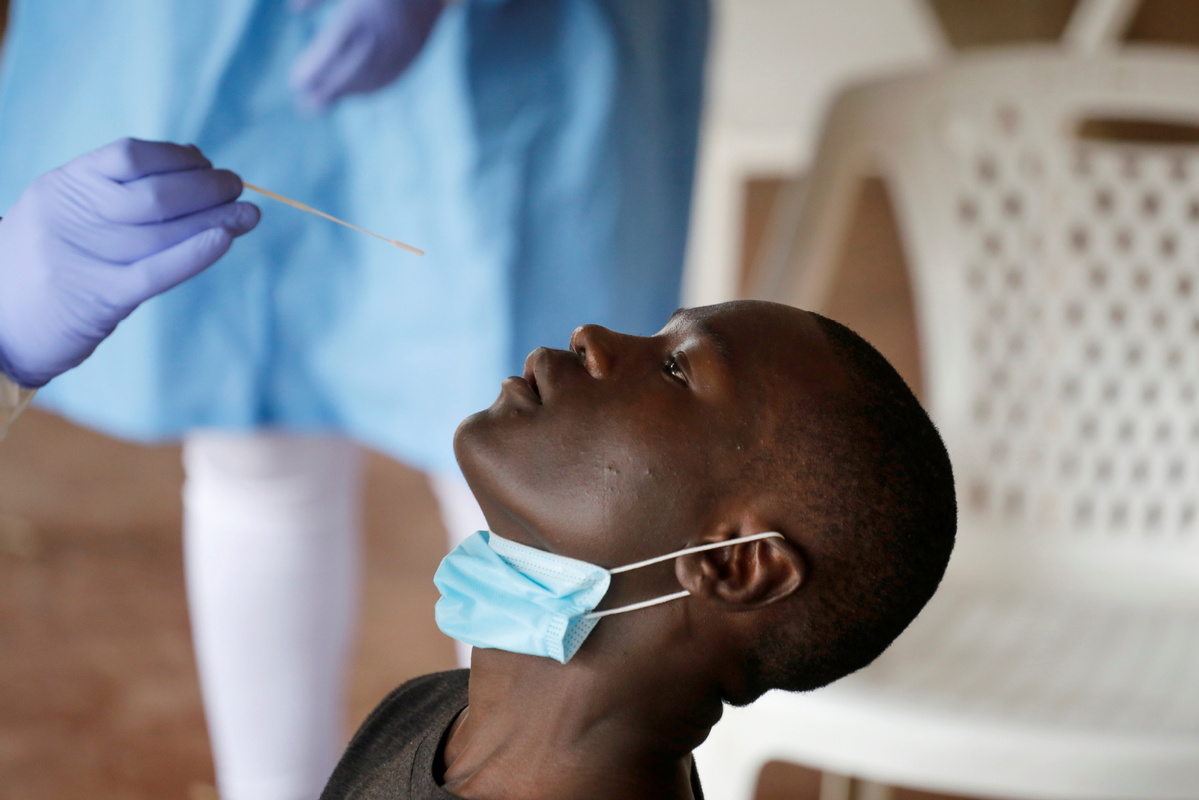Africa urged to avoid complacency as COVID-19 resurges
By Edith Mutethya in Nairobi, Kenya | chinadaily.com.cn | Updated: 2020-10-23 18:23

The Africa Centers for Disease Control and Prevention has urged African countries to avoid complacency and continue observing health guidelines and protocols to ensure the continent is not hit by a second wave of infection.
Dr. John Nkengasong, the director of Africa CDC, told African countries to remain vigilant and keenly observe current trends in Europe.
Between April and July, Europe bent the curve but is now being engulfed by a second wave of infection, with some countries imposing a raft of nationwide restrictions to curb the spread of the virus.
In his virtual weekly briefing on Thursday, Nkengasong said Africa had recorded a 10 percent decrease in the number of new cases, compared to the previous week when it had reported a 14 percent increase.
However, over the last four weeks, Nkengasong said the continent has recorded an average 4 percent increase in the number of new cases, with North Africa leading with 7 percent, followed by the central region with 6 percent, the eastern region with 5 percent and the southern region with 1 percent. The western region has recorded a decrease of 5 percent, bucking the trend.
One of the most populous countries in the continent, Kenya has recorded the highest number of new cases, having recorded a 42 percent increase in the number of new cases over the last four weeks.
The other populous countries, Ethiopia, Egypt, DR Congo and South Africa, have recorded 3 percent increases or below, with Nigeria having recorded a 5 percent decrease.
On Oct 22, Kenya recorded the highest number of new cases on a single day since the outbreak of the pandemic in the country, standing at 1,068.
Mutahi Kagwe, the cabinet secretary for health, warned Kenyans on Oct 18 the country could experience a second wave of infection unless they take the containment measures by the Ministry of Health seriously.
The virus spike comes as political rallies continue in total disregard of coronavirus containment measures like wearing masks and observing social distancing.
Kenya has lifted the strict measures that saw bars reopen and a phased reopening of schools kick off. However, three schools have been closed in Kenya's port city of Mombasa barely two weeks after reopening, after teachers tested positive.
With many other African countries having started the phased reopening of schools, Nkengasong urged countries to open learning institutions safely, ensuring they have personal protective materials available and use them appropriately.
"Make sure classes are reconfigured to allow social distancing, and encourage outdoor activities frequently. Importantly, increase surveillance both in schools and in the community," he said.
In countries where the level of infection is less than 5 percent, Nkengasong said school systems can continue to operate with increased vigilance for testing. However, if the number rises to over 10 percent, then it means there is a lot of community transmission going on and it will be dangerous to continue allowing schools to operate.
Cyril Ramaphosa, chairperson of the African Union and president of South Africa, on Oct 22, said AU remains optimistic the momentum of the fight against coronavirus will not be lost and will ensure all outstanding work is completed.
"The pandemic has shown a great deal of resilience, and countries that have experienced a decline in infections have also encountered surges in infections that have made them revisit lockdown measures. We must try to avoid that scenario in Africa," Ramaphosa said.
Africa CDC is optimistic the roll-out of the World Health Organization approved antigen-based rapid diagnostic tests for coronavirus will help in boosting testing capacity, thus helping to pick up any cluster of infections and deal with it effectively.
According to WHO, many African countries have struggled to test in sufficient numbers to control the pandemic, with only 12 in the region reaching a key threshold of 10 tests per 10,000 people per week during the past month.
Most African countries conduct polymerase chain reaction tests — the gold standard — which require laboratories, reagents and experts, limiting coronavirus testing mostly to large cities. People can wait from 48 hours to more than 10 days for results as they are sent for laboratory verification.
The antigen tests are easy to use, cheaper than polymerase chain reaction tests and provide results in just 15–30 minutes, enabling countries to decentralize testing.























